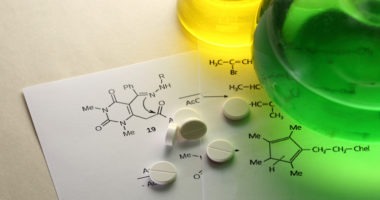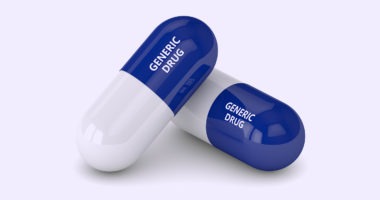The CDMO/CMO and Suppliers Report: Biomanufacturing
Driven by increased demand in biologic-based drugs, biomanufacturing (biologic drug substance) continues to be an active area of investment by CDMOs/CMOs, including several multi-billion large-scale biomanufacturing projects. What companies are expanding and where do these expansions stand?
Expansions in biomanufacturing
Highlights of some key recently announced biomanufacturing (biologic drug substance) expansion plans are outlined below.
Samsung Biologics. Samsung Biologics is proceeding with a multi-billion-dollar-plus investment to expand its biomanufacturing capacity, which includes the addition of a new biomanufacturing plant in South Korea. The expansion includes the addition of a fifth biomanufacturing plant and the expansion of its Bio Campus II, along with the establishment of a new stand-alone antibody-drug conjugate (ADC) facility in Songdo, South Korea. Plant 5, with a capacity of 180,000 liters and spanning an area of 96,000 m², is scheduled for completion in April 2025, contributing to a significant increase in the company’s overall biomanufacturing capacity, which will reach a total of 784,000 liters upon Plant 5’s completion.
The investment for Plant 5 amounts to KRW 1.9 trillion (approximately $1.46 billion). For the comprehensive development of Bio Campus II, which will entail future Plants 5-8 and an open innovation center, Samsung Biologics plans to allocate KRW 7.5 trillion (approximately US $6 billion).
The expansion of Bio Campus II and the establishment of the ADC facility align with Samsung Biologics’ overarching strategy, which centers on three key pillars: capacity, portfolio, and geography. Capacity expansion involves the construction of Bio Campus II, featuring four plants, each with a 180,000-liter capacity. Combined with the company’s Bio Campus I, the company aims to offer total capacity exceeding 1.3 million liters by 2032. Portfolio expansion encompasses a diverse array of therapies, including monoclonal antibodies, duals, messenger RNA (mRNA), ADCs, with future plans to explore cell and gene therapy. In terms of geography, Samsung Biologics says it seeks to fortify its presence in pivotal regions such as the US and Europe through its US sales offices, as well as via strategic expansions, investments, and potential mergers and acquisitions in the future.
Fujifilm Diosynth Biotechnologies. Fujifilm Diosynth Biotechnologies is proceeding with a multi-billion-dollar biomanufacturing expansion to expand large-scale cell-culture bulk drug substance and flexible single-use cell culture capacity, along with the addition of commercial-scale drug product and finished goods capacity.
The company announced a $1.6-billion capital investment for the expansion of large-scale cell culture capacity in its Denmark facility in 2022. With mechanical completion achieved in January 2024, the first drug-substance expansion is set to come on line later this year (2024). A new drug-product facility in Denmark is expected to be operational by early 2025, following a successful filling line test run in February 2024. The second drug-substance expansion is slated for online activation in 2026.
Earlier this month (April 2024), the company announced an additional investment of $1.2 billion in its large-scale cell culture bio-manufacturing facility in Holly Springs, North Carolina, bringing the total investment in the facility to over $3.2 billion. The expansion adds significant large-scale production capacity through its US and European manufacturing hubs. The new investment will add 8 x 20,000 liters mammalian cell-culture bioreactors by 2028, to the already planned 8 x 20,000-L for bulk drug substance as part of the initial investment. This new facility allows for flexibility to expand with additional bioreactors to accommodate new projects to meet the emerging needs of partners.
The company was already investing $2 billion in its Holly Springs, North Carolina, facility. The facility is set to introduce large-scale cell-culture drug-substance suites in 2025. Suite 1, with four 20,000-liter bioreactors, is fully installed while two out of four bioreactors in Suite 2 are already in place. Recent milestones included the facility becoming weather-tight in November 2023, and the company says it is on track for timely project completion.
An $850-million capital investment announced in 2021 signaled the company’s intent to establish a flexible cell-culture facility at its Billingham, UK, location. A significant project scope change focused on applying modular principles, allowing lanes to mix 2,000-liter and 5,000-liter bioreactors. The company says this design ensures flexibility while future-proofing infrastructure for rapid capacity additions as demand dictates. The facility is set to be operational by 2026.
Lonza. Lonza is making a large capital investment through its pending $1.2-billlion acquisition of a large-scale biologics manufacturing site in Vacaville, California, from Roche’s Genentech. Lonza plans to invest an additional CHF 500 million ($554 million) to upgrade the Vacaville facility and enhance capabilities for producing mammalian biologic therapies. The products currently manufactured at the site by Roche will be supplied by Lonza, with committed volumes over the medium term and phasing out over time as the site transitions to serve alternative customers. The Vacaville facility currently has a total bioreactor capacity of approximately 330,000 liters. Upon deal closing, approximately 750 Genentech employees at the Vacaville facility will be offered employment by Lonza.
The transaction is expected to close in the second half of 2024, subject to customary closing conditions. Upon closing, the Vacaville site will be integrated into Lonza’s Biologics Division, joining a network of existing mammalian manufacturing sites in Visp, Switzerland; Slough, the UK; Singapore; Portsmouth, New Hampshire; and Porriño, Spain.
Lotte Biologics. Earlier this year (January 2024), Lotte Biologics, a Seoul, South Korea-based CDMO of biologics, provided an update of its $3-billion biomanufacturing expansion plan, which involves the construction of three new biomanufacturing plants in South Korea. Lotte Biologics first entered the CDMO market with the acquisition of a commercial-scale biomanufacturing facility in Syracuse, New York, from Bristol-Myers Squibb in January 2023. In October (October 2023), the company signed a land purchase agreement with the Incheon Free Economic Zone Authority for the establishment of a biomanufacturing site in Songdo, South Korea. The company plans to construct three biomanufacturing plants with a total antibody drug production capacity of 360,000 liters.
In a recent update in January 2024, Lotte specified that the first biomanufacturing plant (Plant 1) is set to commence construction this year (2024). The plant is planned to be a mammalian cell culture facility with a production capacity of 120,000 liters. The facility will feature 15,000-liter stainless steel bioreactors for current titer needs as well as 3,000-liter stainless-steel bioreactors for high-titer pharmaceutical manufacturing. In all, by 2030, the company plans to construct three biomanufacturing facilities in Songdo.
Other biomanufacturing expansions
Thermo Fisher Scientific. Thermo Fisher Scientific is proceeding with an expansion at its site in Lengnau, Switzerland, with the addition of large-scale bioreactors and a 40,000-square-foot expansion to enhance capabilities to produce biologics at a larger scale.
AGC Biologics. AGC Biologics. a contract biologics manufacturer, announced in January (January 2024) an investment of JPY 50 billion ($350 million) to construct a new biomanufacturing facility at its Yokohama Technical Center in Japan. The new facility will offer preclinical through commercial services for mammalian-based protein biologics, cell therapies, and messenger RNA (mRNA). The site will house multiple 2,000-L single-use bioreactors and several 4,000-L or larger reactors for mammalian cell-culture services. The facility is expected to be operational in 2026, and once fully operational, employ 400 people. The company currently operates one site in the region, in Chiba, Japan, which provides mammalian expression and microbial fermentation services.
MilliporeSigma. MilliporeSigma, the life science business of Merck KGaA, has announced an investment of more than EUR 300 million ($326 million) into a new bioprocessing production center in Daejeon, South Korea, to provides products and services to support biomanufacturing. The company’s new Bioprocessing Production Center will provide products such as dry-powder cell-culture media, process liquids, pre-GMP small-scale manufacturing, and sterile sampling systems. Covering an area of 43,000 square meters, the facility will include production capacities, a distribution center, and an automated warehouse. The investment is expected to create approximately 300 additional jobs by the end of 2028.
Just Evotec Biologics. Just-Evotec Biologics, a subsidiary of Evotec, is investing in a new facility for continuous biomanufacturing in Toulouse, France. The facility applies the company’s J.POD design featuring a single-use continuous cell-culture manufacturing platform set inside production-on-demand modules within a ballroom manufacturing space. In this way it replicates the design of the company’s J.POD facility in Redmond, Washington.
The investment of approximately EUR 150 million ($163 million) was announced in April 2021, and the company broke ground on the project in September 2022. In October last year (2023), the building shell was completed, and the autonomous cleanroom POD installation occurred at the beginning of this year (2024). The equipment will now be installed into the cleanroom PODs ready for the facility to be operational by the second half of 2024.
The facility will contain two continuous cell-culture manufacturing streams. Each stream has an option for either a 500-L or 1000-L bioreactor. J.POD Toulouse will manufacture both clinical and commercial material and will have capacity to produce up to 2000 kg of antibody each year.
Enzene Biosciences. Enzene Biosciences, a Pune, India-based CDMO, is adding a new facility for continuous biomanufacturing in the US via its US entity, Enzene Inc. The company is building a new GMP manufacturing facility in New Jersey, built around the company’s proprietary EnzeneX technology. The company has successfully identified, leased, and set up this inaugural manufacturing plant. The facility is 54,000 square feet and will be launched in three phases, with the Phase I launch date slated for the third quarter of 2024. The facility will include GMP drug-substance capability with 500-L bioreactor (Phase 1), 2 KL bioreactor (Phase 2), and 500-L & 2-KL bioreactors (Phase 3). It will also include a drug-product manufacturing suite with formulation and small-volume filling equipment. The facility will also include a quality control lab, development lab, warehouse, freezer rooms, and a cell-bank store.
Aragen Life Sciences. Aragen Life Sciences, a CDMO of small molecules and biologics, is proceeding with a biomanufacturing expansion by investing $30 million for a cell-culture biomanufacturing facility in Bengaluru (Banagalore), India. The process development laboratory has been operational since December 2023. The first manufacturing suite is scheduled to be operation by December 2024.





